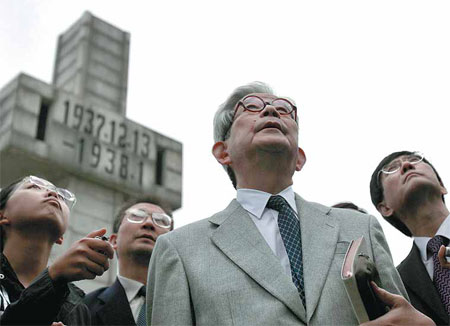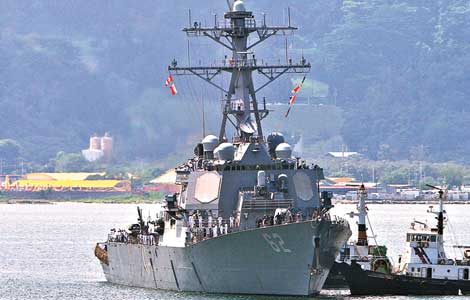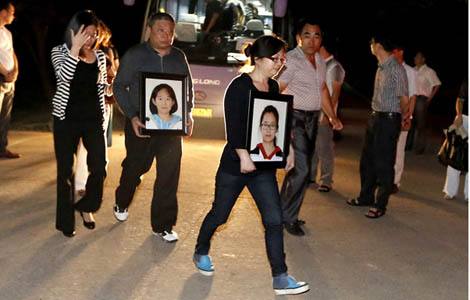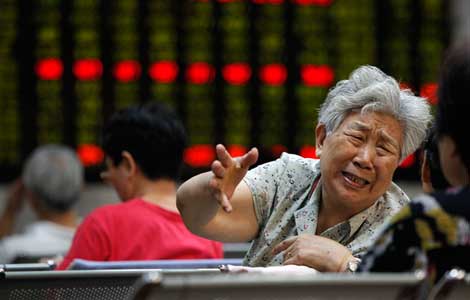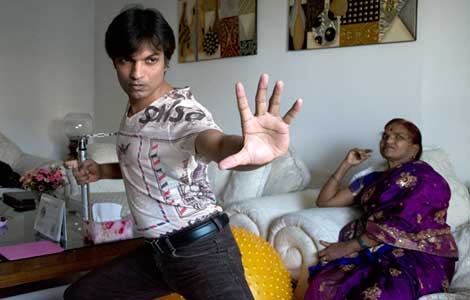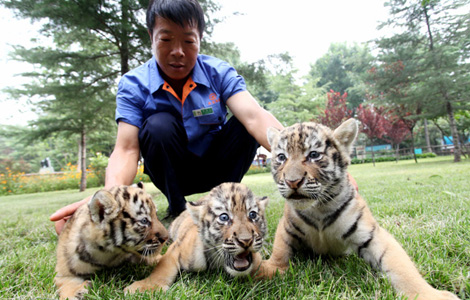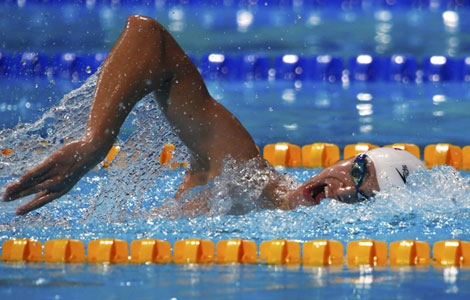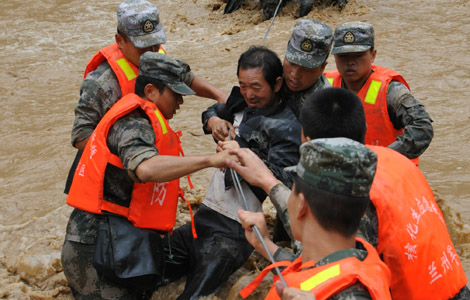Beyond mere words
Updated: 2013-07-30 08:11
By Mei Jia (China Daily)
|
||||||||
|
Kenzaburo Oe has developed strong ties to China in recent few decades. He visited the Memorial for the Victims of Nanjing Massacre in 2006. Provided to China Daily |
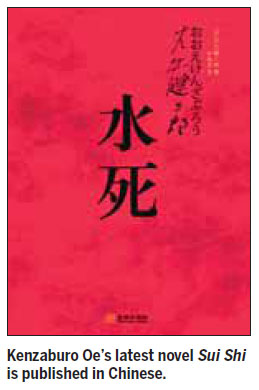
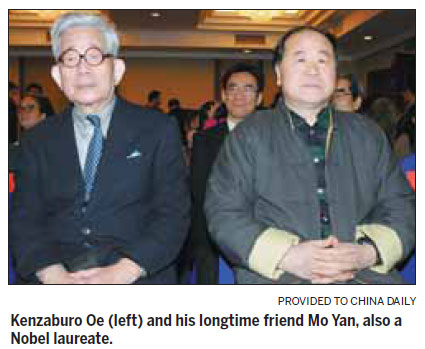
Japanese novelist Kenzaburo Oe's latest book is his most complex work to date. It evolved after he was forced to defend himself in court against accusations of libel. Mei Jia reports.
When Japanese Nobel laureate Kenzaburo Oe's latest novel, Sui Shi (Death by Water), was released in Chinese in mid-July by Gold Wall Press, the novel caused a buzz among Chinese writers and critics, being an unusually difficult read.
Writer Yan Lianke, one of Oe's faithful readers, says he spent one day finishing Oe's award-winning The Silent Cry and two days on The Beautiful Annabel Lee Was Chilled and Killed, whereas in the three days he saved for Sui Shi, he was only able to finish half.
"The difficulty lies in Oe's complex structure," Yan says.
"It's also interesting to note that as Oe reached more maturity in the latter half of his career, he worked even harder to add profundity of his writing," he says. "He won't simply let things go."
The novel was conceived in court as he was defending an accusation of libel against him.
Oe was sued for libel for his essay Okinawa Notes by two retired Japanese military officers. In the essay he wrote about masses of Okinawan people who were coerced into committing suicide under the Mikado's will in 1945.
It was during the trial as a defendant that he got the earliest ideas for the novel.
Sui Shi revolves around Kogito Choko, a writer who has a parallel experience with Oe, and his investigation of a legendary red suitcase to seek the truth about his father's death in a river.
Choko, a winner of an international literature prize, went back to his hometown in Shikoku forest to get the suitcase.
He believed the secrets in the suitcase would help him reconstruct a father's image for his new novel. But he became more confused when he discovered from the suitcase's contents that his father died in a shipwreck after a failed mission to kill the emperor Mikado, in an attempt to save Japan from being defeated in World War II.
Sui Shi's Chinese translator, Xu Jinlong, says the multiple story lines partly contribute to the challenge of reading his work. However, it is Oe's frequent cross-references to foreign writers and cultures that make the translation a real challenge.
Xu, a researcher with the Chinese Academy of Social Sciences, is a leading academic and translator of Oe's works. A winner of the prestigious Lu Xun Literary Prize for translation in 2007, Xu took the translation as a comparative study.
A Tokyo University graduate in French literature studies, Oe takes inspiration from French, English and German literature, to which he also pays great tribute through his own writing.
"I had to ask details and advice from relevant experts to be sure why and how Oe applies each figure, image or phrase," Xu says.
Though Xu has a longtime connection with Oe personally, Xu still found himself drained by the translation.
Xu has written a 20,000-word essay on cavemen to go with the translation because he finds it to be a key image in Oe's novel. He tracks down instances of cavemen in different languages and cultures, and determines that cavemen symbolize democratic spirit in Oe's book.
"Sui Shi is a book about the struggle between the underlying legacies of the imperial system and the caveman spirit. With the former being a prevailing and negative force, the latter brings in hope," Xu says.
To Oe, all of his writings project hopes rising from despair.
Born in 1935 on Shikoku island, Oe began publishing stories in 1957 while still a student of French literature at Tokyo University.
He was awarded the Nobel Prize for Literature in 1994 for creating "an imagined world, where life and myth condense to form a disconcerting picture of the human predicament today".
His first son Hikari was born mentally impaired in 1963, which sent him into despair and inspired his 1964 book, A Personal Matter, about how he accepted the disabled child into his life.
Since then, Hikari has been a reoccurring subject in his writing.
A nuclear activist, Oe has frequently been involved in anti-nuclear demonstrations.
"He even created a formation for the demonstrators, having children and the elderly on the outside circle and the young, core people in the center. His enemies then found no way to break the parade," Xu says.
The 2011 Japan nuclear accident aggravated his anxiety.
"He has been deeply worried. Then he was in despair and thought of burning his drafts," Xu recalls.
Xu says Oe has the habit of checking on Hikari and tucking him under a blanket before he goes to bed every day.
"He suddenly realized that we have the future, because we have children to consider," Xu says. "And the efforts should be carried on."
The idea of writing for the future defines Oe's "last style of a writer".
"He showed me the box in which he stores the pages of his drafts. He writes 400 words on a page of paper, and uses glue, paper tips, and scissors to edit his draft," Xu says.
"He usually spends one hour in writing a page, and two hours more to polish it."
Contact the writer at meijia@chinadaily.com.cn.
(China Daily USA 07/30/2013 page9)
Most Viewed
Editor's Picks

|

|

|

|

|

|
Today's Top News
Former US president plans to visit DPRK
China struggles to retain talents
Families of crash victims to sue Asiana in the US
Detroit: Gold mine for China
Major SOEs eye profits from abroad
Train collision kills at least 44 in Switzerland
Sino-Japanese summit ruled out
Manila's base plan targets China
US Weekly

|

|
